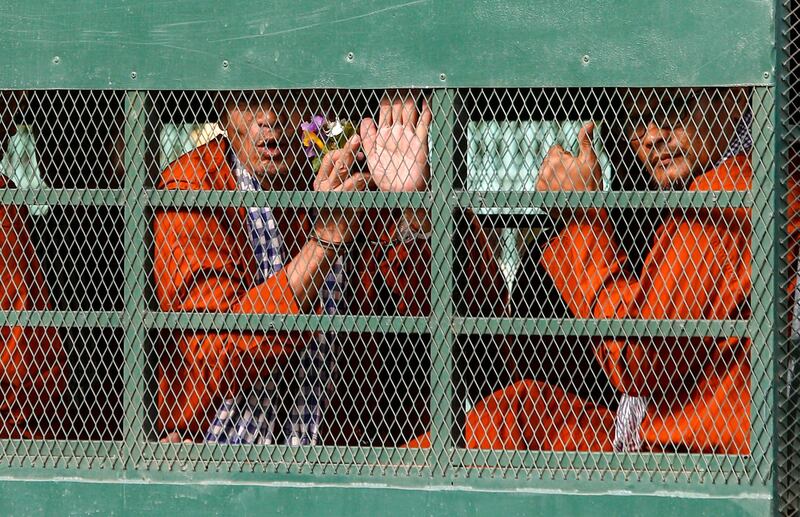Cambodian Prime Minister Hun Sen has stated that he will continue to lead the ruling Cambodian People’s Party (CPP), and thus remain in power, even after he one day retires from the government.
Having ruled the Southeast Asian country since 1985, Hun Sen has teased the idea of stepping down several times in recent years amid speculation that he is grooming his son Hun Manet to take over.
The CPP recently passed amendments to the Cambodian constitution that analysts have said make it easier for a transition of power from father to son to occur.
But even if that happens, Hun Sen would still be CPP president and would have final say on major decisions, he said.
“I would have the right to review prime ministerial and minister activities, so if you don’t perform well, the party president will fire you,” Hun Sen said during a public gathering Tuesday in the northwestern province of Siem Reap.
“Some people might criticize me for being a remote control giving orders from behind [the scenes]. In Cambodia, voters vote for the party and then the party appoints the prime minister,” he said.
Hun Sen’s comments indicate that he would still babysit Hun Manet should the son step into his father’s shoes, and suggest that the son does not carry enough political clout himself to compete with opposition, even within his own party, exiled political analyst Kim Sok told RFA’s Khmer Service
“It is clear that Hun Manet can only have power by doing what his father wants, because Hun Manet cannot be prime minister without CPP support,” Kim Sok said.
“He gets the power that his father robs for him,” he said, explaining that Hun Sen has been trying to put pressure on his own party.
In late August, Hun Sen also told Hun Manet that even he could be fired as prime minister if he refuses to meet his father’s expectations.
But for now, Hun Sen will remain prime minister for the foreseeable future, as the CPP elected him in late December to serve another 10 years.

Appeal denied
The latest remarks from the strongman ruler came as a court in Phnom Penh upheld convictions against 13 activists who were sentenced to five years for their involvement in the failed 2019 plot by self-exiled opposition leader Sam Rainsy to return to Cambodia.
Ouk Chanthy, the wife Yim Sareth, one of the 13 activists, told RFA that she was saddened with the verdict delivered Tuesday and that her husband and the others are innocent.
She said the verdict is unjust and proves that the court is not independent.
“The courts listen to politicians. If they don’t allow the court to release the activists then they won’t release them,” she said.
“Our family members would have been released two years ago if the court were independent because they are innocent,” she said. “I will continue to fight for justice for the activists.”
Based on the evidence, the court’s ruling is inappropriate, the activists’ lawyer Sam Sokong told RFA.
He said he would take the case to Cambodia’s Supreme Court, and urged the Ministry of Interior’s Prison Department ot transfer the activists to Prey Sar prison in Phnom Penh, because it is closer to their family members than where they are currently held, far away in Tboung Khmum Province in the southeast.
“As a lawyer, I am disappointed because the ruling doesn’t give justice to my clients,” he said.
“This is a political case. My clients continue to maintain their innocence,” said Sam Sokong.
The decision of the court was not surprising to Soeung Sengkaruna, spokesperson for The Cambodian Human Rights and Development Association (Adhoc), a local rights group, who told RFA that it was a politically motivated case.
“If Cambodia wants to avoid being criticized and condemned by the international community, [the government] should not persecute opposition activists by using the judicial system,” Soeung Sengkaruna said.
“We need to end it and restore the democratic process and respect of human rights,” he said.
Translated by Samean Yun. Written in English by Eugene Whong.
